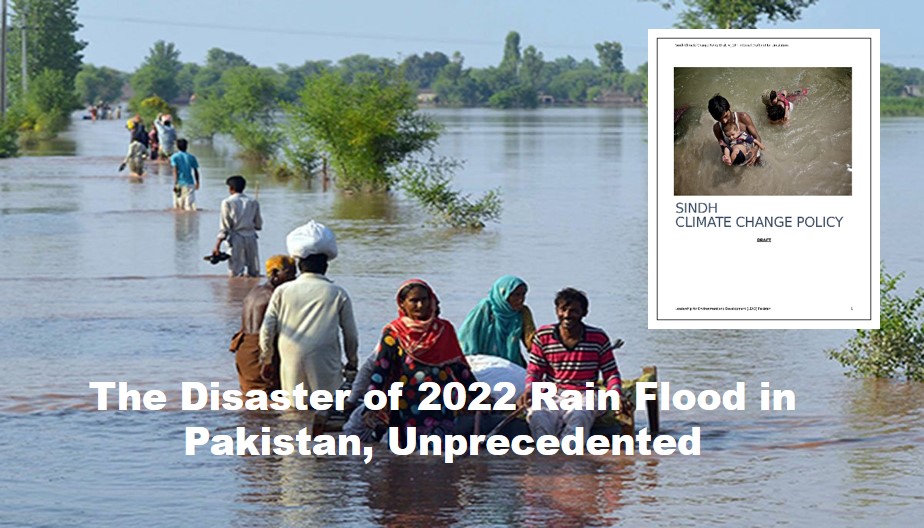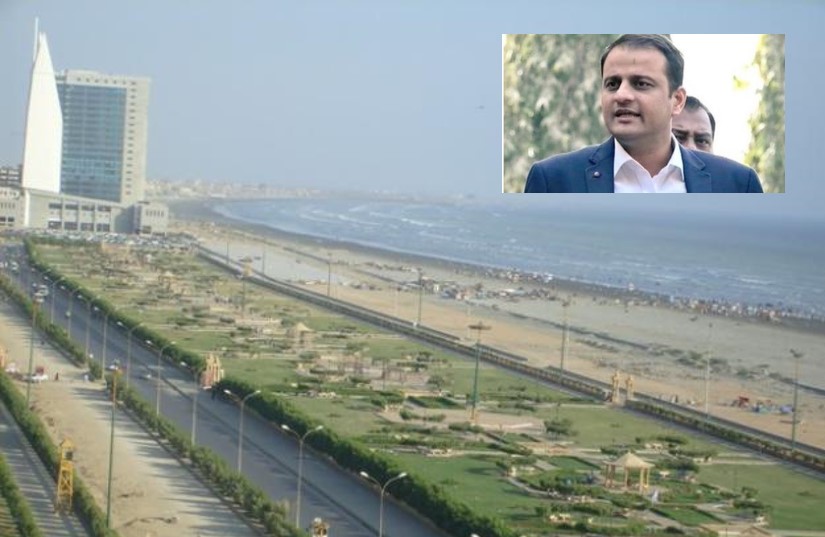
Environment and climate change is a federal and provincial subject in Pakistan. However, growing heat island effects, deteriorating air quality and regular events of urban flooding each year ask urban planners and metropolitan authorities to reconsider their infrastructural planning and development patterns keeping in view efficient climate-resilient strategies. That’s not possible without empowering local governments to tackle the environment issues by themselves as well as devolving subsequent functions of environment protection and climate change solutions from provincial governments to local bodies.
Local Government & Climate Change
Last year on the February 1, 2022, the Supreme Court in a judgment directed the Sindh government to devolve financial, administrative and political powers to the local governments in the province as enshrined in the Article 140-A of the constitution. That also be understandably entailed with devolution of various functions of Sindh Environment Protection Agency (Sepa) to local bodies. But the Sindh government is, so far, unmoved and silent on decentralization of Sepa.
There is no denying the apex court didn’t name Sepa in the Order. But environmental laws have historically been considered superior to other laws which gives them an overriding effect. Environment watchdog has been above all the government tiers as according to the Section 24 of the law. Sepa has overriding powers over other civic agencies and its jurisdiction extends to even areas like cantonment boards that come under the federal domain. For example if the Sindh Building Control Authority (SBCA) gives approval for the construction of any building but the Sepa raises objections, the latter will have an overriding effect. Similarly, the cantonment areas in Karachi have separate building bylaws and they are not in the domain of the SBCA, but approval from Sepa is mandatory for them as well.
Sindh Climate Change Policy 2022 Failure
Besides, the subject of environment at provincial level cannot address local climate change problems. For instance, the Sindh Climate Change Policy 2022 reportedly neglects major environmental challenges being faced by Karachi. As the document lacks details on the strategies that could help tackle heat waves, urban flooding, significant reduction in groundwater levels and the risks posed by massive increase in concrete and bitumen due to infrastructure development. In fact, the megacity of 25 million needs an independent Climate Change Policy, mentioning a progressive plan of action to prevent it from urban flooding and land degradation, as drainage systems have collapsed and the concrete jungle has choked natural rainwater run-off channels here. The plan also includes creating flood maps, flood modelling, creating spaces that can store rainwater, wetlands restoration, and replacing concrete with permeable surfaces. The city also needs improvement in green cover which has been drastically reduced in recent times. Parks, green belts, public spaces and plantation drives at grass-root tiers can play more aggressive to improve green cover and air quality in the city.

Furthermore, only an empowered local government with the support of law enforcement agencies can undertake the gigantic task of enforcing decade-old ban on polythene bags in Karachi. Being the largest city in terms of area and population, Karachi also tops in the list of cities where 9 to 10 billion polythene or plastic bags are used every year. This widespread use of plastic bags is one of the biggest environmental hazards, taking a heavy toll on the metropolitan’ infrastructure, sewerage system, municipal services and ultimately leads to coastal pollution.
Time to Devolve Functions of Environment Protection
More significantly, in Pakistan functional local governments can play a more effective role in emergencies and managing natural disasters, much better than federal or provincial ministries as well as Disaster Management Authorities. Whether it is organizing civil defense, helping evacuate settlements or coordinating relief and rehabilitation work, it is the local representatives who are closest to the people, and can better communicate their needs to the federal and provincial governments, as well as to donors. Elected local bodies may not be able to prevent natural disasters but they can play constructive part in building resilience to natural calamities. Because the local leadership is closer to communities and can develop resilience quicker and stronger. Besides, it can also engage local traders’ associations, business chambers, NGOs and civil society better and more efficiently in disaster-mitigation. Climate vulnerability is fundamentally a local issue and local government institutions are the most important building block for climate resilience.
The 2022 monsoon disaster and unprecedented weather patterns across the country demands provincial governments to decentralize functions of environment watchdog to local governments or civic land and municipal authorities. Because unless local government institutions are developed, trusted and resourced neither the scale of devastation can be reduced nor the restoration effectively rehabilitated. It is appropriate to see climate change phenomenon at broader perspectives from oceans and geography to atmosphere and glaciers, but solutions and better implementations lie at grass roots where water management, afforestation, land-use and waste management can play basic roles to rehabilitate or safeguard environment.
By
Editorial, Infocus


